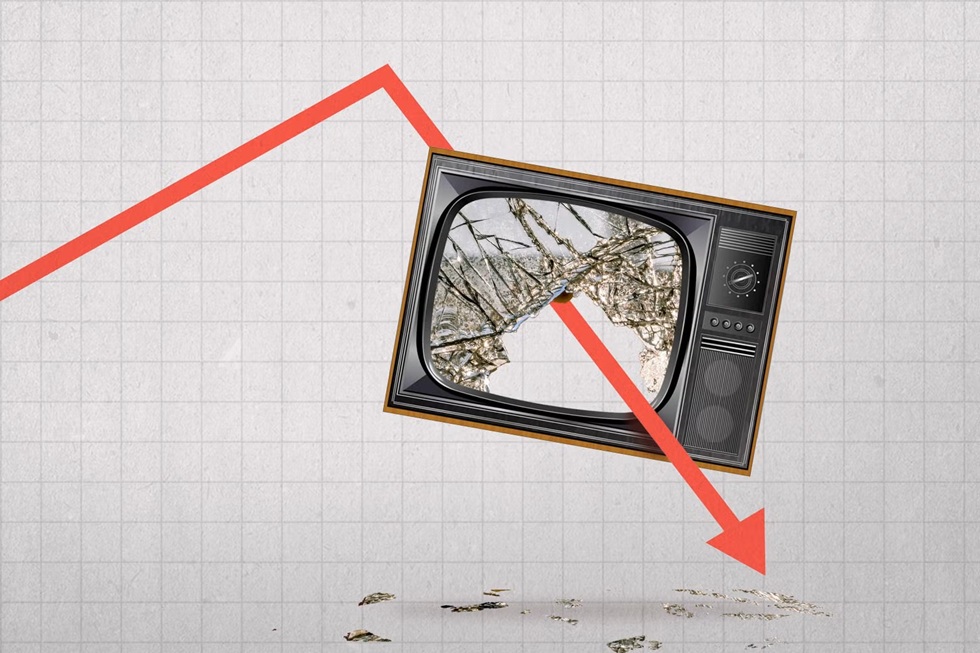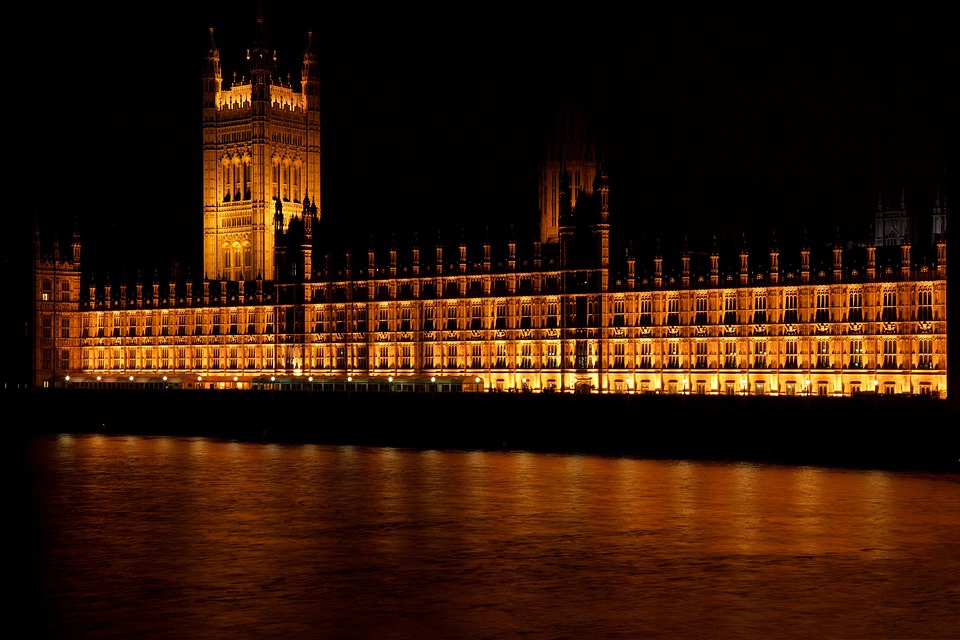
The end of peak TV?
LILLE, France—One of the key phrases circulating within the streaming series TV industry is “post-peak” TV, that is, the boom era is over, except for possibly Netflix, one of the few streamers to increase its production budget this year from $17 billion to $18 billion. That was the word from Series Mania in France’s Lille, the largest TV festival in the world, which this year screened 48 series from 19 countries with 108,000 professionals and fans participating.
TV series production, according to the British statistical agency Ampere, consisted of 587 series in 2024, down from 777 series two years before, a decline of 25%, though the festival received a record number of entries for its various competitions. Series Mania’s three-day TV biz summit, or Forum, focused on three challenges to the European TV industry, as laid out by Anne Beauverot, the festival president. They are: Cutbacks in financing, which for the European TV model, majority public television, means decreases in government allocations; how to address the loss of younger viewers to social media; and how to cope with the rapid intrusion of Artificial Intelligence into the industry.
The “end of peak TV” or downturn in the business, which has meant a shrinking of not only series but also episodes and episode length, is, as often the case in Europe, led by a U.S. downturn in the same way that the fallout from the U.S. mortgage market in 2008 prompted the European state debt crisis. Hollywood, still struggling to come out of the loss of production due to the COVID lockdown, then experienced the writers’ and actors’ strikes, which were about equity for both unions, with the L.A. fires following hard upon. However, all this must be taken with a grain of salt, as Ampere forecast that by 2029 the global streaming business would generate profits of $190 billion, with the next region of exploitation being the Asian Pacific.
These questions play out against a media ecological background in Europe of the always-increasing presence of U.S. streamers. With the U.S. market saturated and subscription growth slow, the major streamers (especially Netflix, Amazon, and Disney) are looking more than ever to Europe to boost profits and are continuing to produce local fare. Production in Hollywood has moved to such an extent that when the fires hit Los Angeles, and the worry was that they would shut down shooting, only two films were currently being shot there.
While one trend is the “broadcastification” of streamers, with each attempting to lock up sports events to draw live audiences and with advertising now being a significant part of their revenue, the other trend is the saturation of the European model by the Americans with nine of 10 of the most popular streaming groups U.S.-based, and one of four private TV channels in Europe now U.S.-owned.
The Netflix presentation let the cat out of the bag, in terms of how the U.S. streamers plot global domination, when the presenter revealed that the service was “less than 50 percent connected into households globally” and only capturing “6 percent of market revenue.” Amazon touted its rise in the Nordic countries without mentioning the corresponding fall of the Nordic streamer Viaplay, which failed in its attempt to go global and penetrate the Anglo market, such that Viaplay has become, instead of a global rival, more of a producing studio for the streamers. Amazon, which by the way now brands itself as “Prime” or as MGM studios, since its owner Jeff Bezos has fallen into ill repute around his championing Trump, as an example of its embeddedness in European production, cited Girls of Oslo who all look like the glamour queens in the Real Housewives of… franchise. European newcomer Paramount Plus cited as an example of its global reach, NCIS: Sydney, an umpteenth iteration of the model imposed on local cultures. Last but not least, an AMC executive explained that the impetus for expanding its Walking Dead franchise to France in its Daryl Dixon series was that a network executive “wanted to see Zombies under the Eiffel Tower.”
 Girls of Oslo, Amazon’s gift to the Nordic countries.
Girls of Oslo, Amazon’s gift to the Nordic countries.
All of which brings up the question of regulation, of how the Europeans are coping with this intrusion. One panel host suggested that the point of Trump’s European tariffs was to overthrow European digital and television regulations, and that would be a major part of the upcoming tariff negotiation. The Europeans have an Audio Visual and Media Directive that suggests, without requiring, that American streamers contribute a percentage of their profits to the country where the series are produced. Fourteen countries impose these obligations. The percentages start from 1.5, with France’s 25% being the highest. It was pointed out that though France has the most stringent rules, while also requiring that a French producer be hired on each American production as a way of absorbing the American system, the regulation has in no way stopped the streamers from producing in France, while the contribution has aided French film and television outlets.
A panel on AI revealed the ways the technology was already being used in the industry to create elaborate green screens for documentaries, to analyze character arcs and plot point,s and provide custom summaries of series so viewers can catch up quickly, and in dubbing into different languages, an industry in itself in Europe. But what of the loss of jobs?
The American rep on the panel, Eric Barmack, boasted that his production company, Wild Sheep Content, had only five employees who, with AI, were able to do the work of 100, little realizing that many of the creators in the audience were wondering what becomes of the other 95? He claimed that 80 to 90 percent of the work in Hollywood is now utilizing AI. His fear, he explained, is not for the industry people who are losing jobs but for what amounts to the “democratization” of TV and filmmaking, and he pointed to the industry boogie man of the 16-year-old who sits in his bedroom and turns it into a production house for 2-to-3-minute films, saying that his kids were enthralled with this short form.
 Is AI coming for your job?
Is AI coming for your job?
The audience clapped for his description of a fearful future, but the description itself belies the fact that traditional media outlets are losing control and more and freer opinions are circulating, with the media ecosphere now widening to include not just 16-year-old wunderkids but also more direct challenges by activists to mainstream political ideology.
Besides “post-peak” TV, the other most popular buzzwords at the conference were “community,” “escapism or lightness,” and “women.” Community, of course, didn’t mean furthering actual communities but creating digital word of mouth that could be converted into subscriptions. Lightness was the counter streaming execs were proposing to the fact that, as one industry spokesperson said, “everything is heavy, dark,” and so the industry suggests, rather than confronting the issues that plague Europe and the world, instead making a virtue of ignoring them. The emphasis on women was not so much on their liberation as on the recognition that they are driving subscriptions.
Underneath these buzzwords is the great fear in the industry, which goes by the name “churn,” that viewers will float from one streamer to the next and unsubscribe as soon as they have seen one of the two shows that interest them. In terms of “community,” an Amazon executive revealed that the company favors unifying Europe into a single market so that investment in each individual country would immediately circulate across the continent. Putting the buzzwords together, the suggestion is that Amazon’s predominantly female community should be dedicated to lightness and escapism, that is, given the declining standard of living on the continent, to watching Jeff Bezos fiddle while Europe burns.
We hope you appreciated this article. At People’s World, we believe news and information should be free and accessible to all, but we need your help. Our journalism is free of corporate influence and paywalls because we are totally reader-supported. Only you, our readers and supporters, make this possible. If you enjoy reading People’s World and the stories we bring you, please support our work by donating or becoming a monthly sustainer today. Thank you!
CONTRIBUTOR







